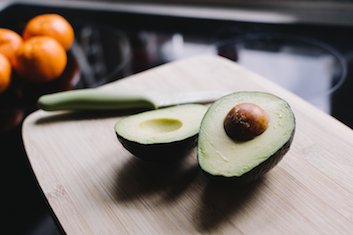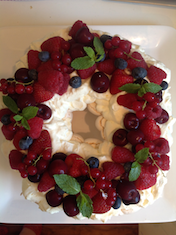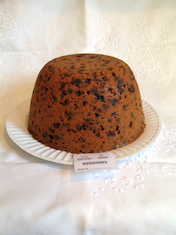What is an infinitive?

An infinitive verb is the base form of any verb. The infinitive form consists of the word to and then whatever word makes up the verb. In Hamlet’s famous soliloquy, ‘To be or not to be . . . To die, to sleep: To sleep, perchance to dream’, there are six infinitives: to be, to be, to die, to sleep, to sleep and to dream. (There are more in the actual speech: I have only quoted six here.)
Infinitives are named for a logical reason: they are infinite. While all conjugated verbs are limited in person and number, and then can be restricted to a particular time (past, present or future), and specify a degree of completion, infinitives are not restricted to a particular person or number of people, and are not bound in time. They are, in other words, infinite.



Surprisingly, there is no special name for the first part of the infinitive. The second part of the infinitive – the word that tells us which verb it is – is sometimes called the bare infinitive. We use a bare infinitive after a modal verb; we use a full infinitive after a quasimodal or at the end of a catenative verb.
- She should write her Christmas cards. (modal verb – should – with bare infinitive – write)
- She ought to write her Christmas cards. (quasimodal verb – ought – with full infinitive – to write)
- She intends to write her Christmas cards in the next couple of days. (catenative verb with full infinitive – intends to write)
While the bare infinitive most of the time is exactly the same as the first and second person simple present, you can see the need for the bare infinitive with the verb to be (where not one of the conjugated forms is the same as the bare infinitive).
- Her Christmas cards should be in the mail soon. (not should am or should are)
In one of the weird quirks of the English language, we can also use an infinitive as a noun. In the following sentence, the infinitive to write is being used as part of what is called a noun phrase (the name of an activity): the full noun phrase is to write Christmas cards:
- To write Christmas cards in early December is always her (rarely achieved) ambition.
While using a verb as a noun seems wrong, it is something that happens often, and in my next couple of posts I will look more at this use of verbs. Remember: in English, we work out what part of speech a word is from the role that words plays in a sentence, not from looking at the word (or even a couple of words) alone. To write is nearly always an infinitive verb but we can construct sentences where that infinitive functions as a noun.
Is it a rule to never split an infinitive?
You should never split an infinitive: this is one of the few English ‘rules’ that most people seem to have some awareness of. Unfortunately, like a lot of things in English, it isn’t a black-and-white case.

A split infinitive is where some other word sits between the to and the rest of the infinitive. The subheading I’ve used – It is a rule to never split an infinitive? – contains a split infinitive: the word never splits the infinitive to split. Is this wrong? Well, where else could never go? Is it a rule never to split an infinitive? is the only alternative, but the never has more emphasis in the middle of the infinitive.This all came about because grammar was originally developed to describe the Latin language and, in Latin, infinitives are one word (as they are in French and German, for example). There is no way to split a Latin infinitive. When grammarians first began to use the grammar rules of Latin to describe English, they had a problem with infinitives. If an infinitive can’t be split in Latin, should it be split in English? They initially decided no – and pretty much ignored the point that they trying to fit rules for oranges onto apples; the issue they were comparing across languages wasn’t the same.


![]()



If you are making avocado toast, you have to first split your avocado (and that’s a split infinitive – see how putting first in the middle of the infinitive gives it more emphasis?). If you then top your avocado toast with an egg, it makes sense to keep the egg together. But there are other occasions when eggs need to be separated: for instance, if you are making the meringue base for a Christmas pavlova, or if you are making custard to accompany a traditional Christmas pudding (like the prize-winning ones made by sister). Infinitives are the same as eggs: most of the time they are best kept whole, but there are times when an infinitive has to be split. In the sentence:
- She asked him to kindly shut up so she could point out the relevant data
there is no other place in the sentence where kindly can be placed without changing the meaning of the sentence. The sentence means that what she said was ‘Could you kindly shut up?’ If we move kindly, the meaning changes:
- She asked him kindly to shut up so she could point out the relevant data.
- She asked him to shut up kindly so she could point out the relevant data.
- She asked him to shut up so she could point out the relevant data kindly.
![]() In the same way eggs must be separated to make pavlovas and custard, sometimes infinitives just have to split. Don’t be fussed about it. It might be more stressful if you have to split a mince tart . . .
In the same way eggs must be separated to make pavlovas and custard, sometimes infinitives just have to split. Don’t be fussed about it. It might be more stressful if you have to split a mince tart . . .


If you have found this post interesting, you can find a full index to my other posts on the index page. To be notified when I post a new topic, follow me on Facebook! If you have any particular questions you’d like me to answer in future posts, just send me a message. I’m always interested to learn what people think, and how you came across this site, so please post a comment.
If you think you would be interested in either my complete grammar course or an individual customised online course (particularly suited for people who don’t live in Melbourne), just click your preferred option.
2 comments on “Verbs: infinitives – to split or not to split?”